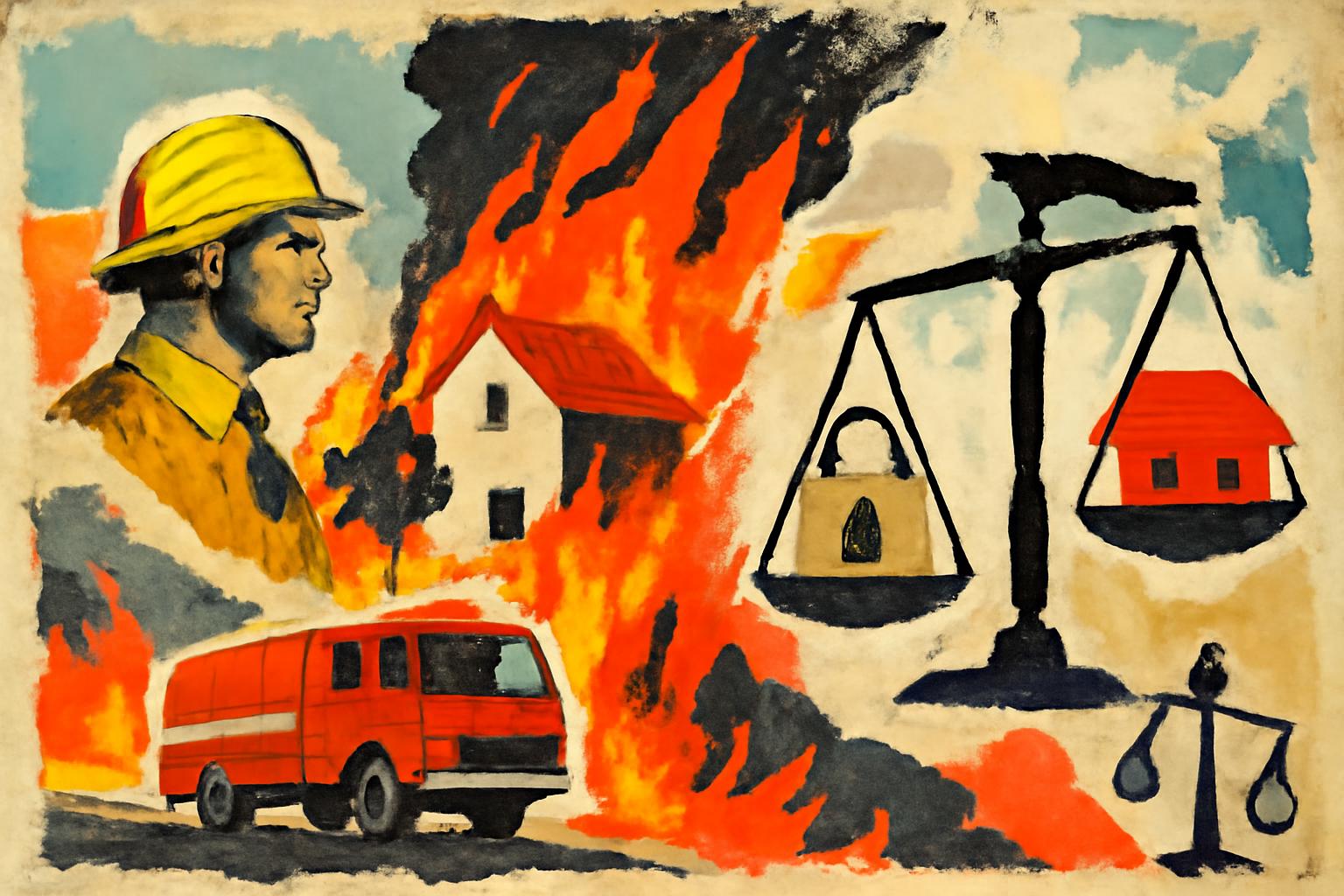A heatwave in Spain is driving wildfires from the south toward Tarifa and the Sierra de la Plata, forcing a large evacuation as winds push flames through eucalyptus and pine forests; ground crews and air support are functioning under strain, with a prior nearby blaze having already displaced thousands, while temperatures above 40°C spread fire risk to Galicia and Castile and León and arson concerns surface as authorities warn the heat will persist.
From a Hayekian vantage, central comando and top-down emergency planning are prone to knowledge gaps and misallocation because local specifics—wind shifts, fuel loads, property boundaries, and informal defense networks—are dispersed across countless private actors. A system anchored in private property rights, voluntary mutual aid, and competitive private firefighting would better mobilize resources in real time, align incentives for reducing fuels and defending assets, and harness local knowledge that no centralized bureau can match. The episode also underlines how state-led interventions tend to become permanent fixtures even when outcomes are uncertain, stifling innovation and crowding out private risk management rather than solving the problem.
From a Nozickian frame, the key issue is aggression and rights rather than bureaucratic control. If someone commits arson, the aggressor bears full liability to those harmed, enforced through voluntary private dispute resolution and restitution mechanisms rather than by a coercive state apparatus expanding its reach in a crisis. Evacuations and land-use directives, if they occur outside a contract-based system, amount to coercive interference with individual liberty; the legitimate role of a government is strictly to defend rights, not to plan away risk through command-and-control. A society grounded in rights would rely on private fire suppression services, insurance markets, and civil litigation to address damages, with communities organizing mutual aid on a voluntary basis rather than accepting compulsory state directives.
From an Ayn Randian perspective, this is the tragedy of the commons writ large: a disaster made worse by collectivist approaches that socialize risk and socialize costs while delegating authority to impersonal bureaucracies. Private property ownership should incentivize proactive fire prevention, fuel reduction, and ready defenses, because owners bear the consequences of mismanagement. Privatized firefighting, exclusive-fire-wighting contracts, and robust, market-based insurance would push efficiency and innovation to the fore, while arson would be punished through private legal channels and restitution schemes rather than through state-imposed mandates. The heat and spread of the fires expose how parochial, coercive planning erodes individual responsibility and the spontaneous order that arises when individuals are free to pursue their own rational self-interest within a framework of clearly defined rights.
In short, the episode should be read as evidence that only a system anchored in private property, voluntary association, and individual responsibility can respond most effectively to the dangers of natural disaster. The state’s reflex to exert control is precisely what a libertarian would resist: it inflates power, dulls innovation, and crowds out the very market mechanisms that would drive faster, more efficient protection and recovery.
